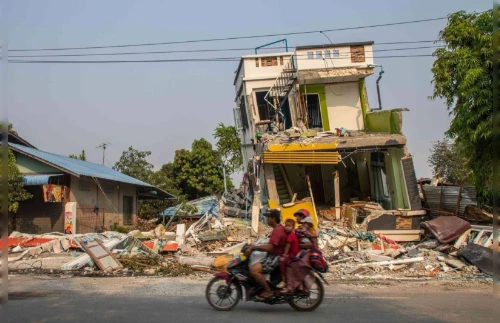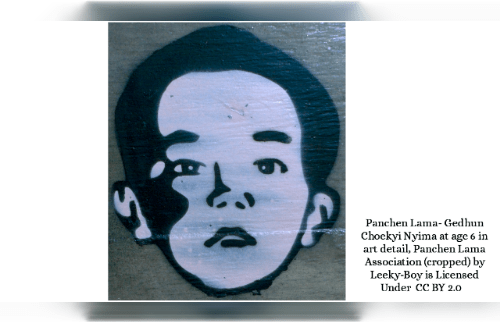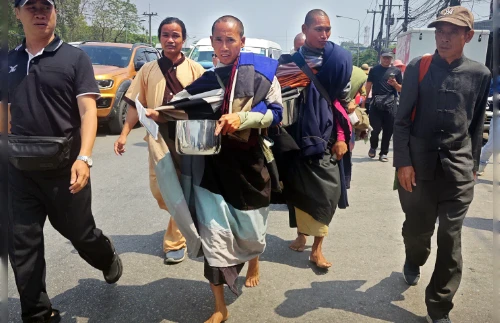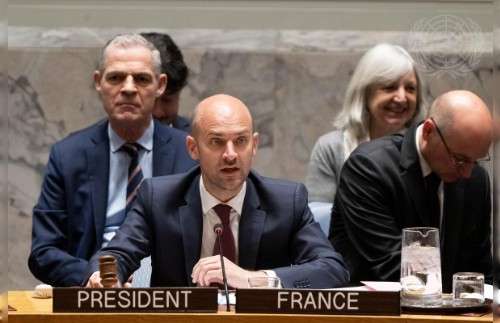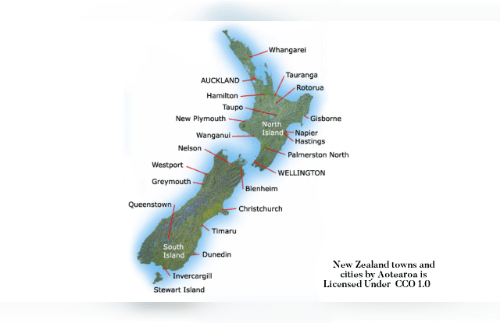While Bangkok has legalized same-sex marriages, Kuala Lumpur will not recognize such nuptials.
Iman Muttaqin Yusof/Kuala Lumpur
For Nasir Ali, marriage always felt like an impossible dream – he and his boyfriend have been in a long-distance relationship for 13 years despite knowing they could never marry in Malaysia.
But with neighboring Thailand’s same-sex marriage law coming into force last month, that dream suddenly feels within reach. For many LGBTQ+ Malaysians, Thailand’s decision isn’t just about the chance to tie the knot – it’s a symbol of hope, even if their unions won’t be recognized back home.
“Marriage, to me, is more than just a legal bond,” Nasir, who lives in Kota Kinabalu, Sabah, told BenarNews in a phone interview. “It’s a promise that love will endure, no matter the distance, the struggles, or the world’s resistance.”
Nasir, 33, and his partner, 38, who requested anonymity because of privacy concerns, have no immediate timeline to wed.
“We’ll do it when the time feels right and when we can love openly without fear,” Nasir said. “I don’t need a grand wedding, just a space where love is felt in every word, every touch. A moment where love, in all its resilience, takes center stage.”
Thailand made history last year when it legalized same-sex marriage, becoming the first Southeast Asian nation to do so and only the third place in Asia after Taiwan and Nepal. Over 1,000 couples across Thailand exchanged vows on Jan. 23, the day the law took effect.
The law allows foreign nationals to marry and honor their unions, but the couples must report the marriages to their home governments or consulates. BenarNews could not determine if any Malaysian couples had crossed the border to get married.
That hasn’t stopped Kuala Lumpur resident Afiq, 25, from dreaming of a wedding with his boyfriend of nine years.
“Something simple but meaningful,” he told BenarNews. “Maybe a beach or a quiet garden-themed wedding, surrounded by people who love and support us.
“It’s not about extravagance; it’s about standing beside the person I love and knowing we’re stepping into our future together, without barriers or fear.”
But while the idea of marriage is exhilarating, the reality can be complicated.
“There’s no point, actually,” said a Malaysian man who asked to remain anonymous over privacy and security concerns. “The law isn’t valid here. My partner and I have been together for 16 years, but we can’t even buy a house together.”
Restrictive laws
Malaysia remains one of the most difficult places in Southeast Asia for LGBTQ+ individuals, where homosexuality is criminalized under colonial-era laws and further penalized by Sharia courts for Muslims.
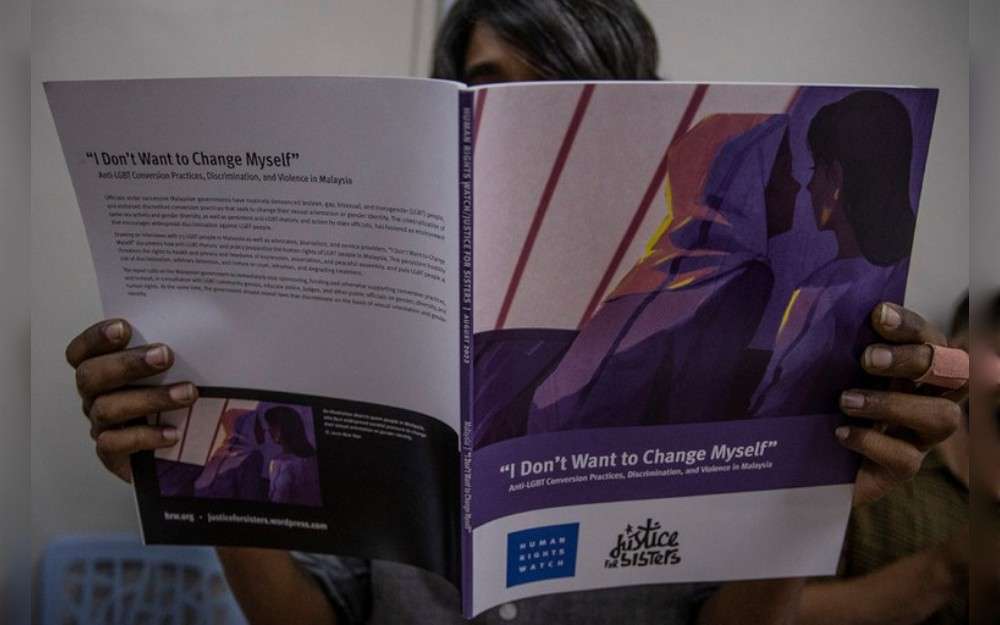
Under the country’s dual legal system, civil laws apply to the general population, while Sharia law governs Muslims in matters related to family, morality and religious practices. Same-sex relations can be punished with up to 20 years in prison under the civil system.
In addition, only 17% of Malaysians support same-sex marriage with Muslims reporting the lowest support of any religious group surveyed, according to a 2023 Pew Research Center survey.
Justice for Sisters, a Malaysian rights group, noted that the Malaysian government has also actively cracked down on LGBTQ+ expression.
“In January, authorities banned two more books featuring LGBTQ+ themes, bringing the total number of prohibited publications to 13 since 2020 under the Printing Presses and Publications Act (PPPA),” Thilaga Sulathireh, the group’s co-founder, told BenarNews. “Out of the 22 books banned during this period, 59% were LGBTQ+ related.”
Thilaga said “the state has systematically targeted LGBTQ+ expression,” but the fact that marriage equality is now available in Thailand “at least gives some Malaysians a sense of security in their relationships.”
“It opens up the possibility of living without having to hide or fear violence or legal repercussions,” said Thilaga, who identifies as non-binary.
Crossroads
For other activists, Thailand’s move could put Malaysia under international pressure as it leads the Association of Southeast Asian Nations (ASEAN) this year.
Still, Prime Minister Anwar Ibrahim in 2023 said Malaysia would never recognize LGBTQ+ rights. In separate remarks, he has said many religions “cannot accept the open display or practice” of such identities.
Despite those statements, activists are not giving up hope.
“[T]here’s regional pressure for Malaysia to step up its game,” Dhia Rezki Rohaizad, deputy president of Jejaka, a Malaysian group supporting gay and bisexual men, told BenarNews. “With Malaysia’s ASEAN chairmanship themed around ‘Inclusivity and Sustainability,’ we hope our advocacy won’t fall on deaf ears.”
Dhia warns that Thailand’s progress could fuel backlash in Malaysia.
“We saw an increase in anti-LGBT sentiment on social media when Thailand was still debating the bill last May. It eventually got picked up by local news, fueling more hostility,” Dhia said.
The situation in Malaysia is made worse by state-led “rehabilitation” programs targeting LGBTQ+ individuals, critics noted. In 2023, Johor state authorities proposed Islamic rehabilitation centers for same-sex offenders.
“There has been ongoing and systemic discrimination and persecution,” Josef Benedict, a Civicus Monitor Asia Pacific researcher, told BenarNews.
“Malaysia’s laws – both colonial-era civil statutes and Sharia regulations – continue to criminalize and persecute LGBTQ+ people. The government’s push for ‘conversion’ programs only worsens the situation, driving self-hate and reinforcing oppression.”
Seeking recognition elsewhere
For Shayree, 23, who uses a pseudonym because of fear of reprisal, Thailand’s law offers a possible escape route. He is among those considering marriage across the border.
“I’ve thought about leaving Malaysia to experience love freely, without judgment or fear of expressing affection in public,” he told BenarNews. “Moving to a country where same-sex relationships are legally recognized would also mean being in a society where more people feel secure in their identity.”
Copyright ©2015-2024, BenarNews. Used with the permission of BenarNews.







